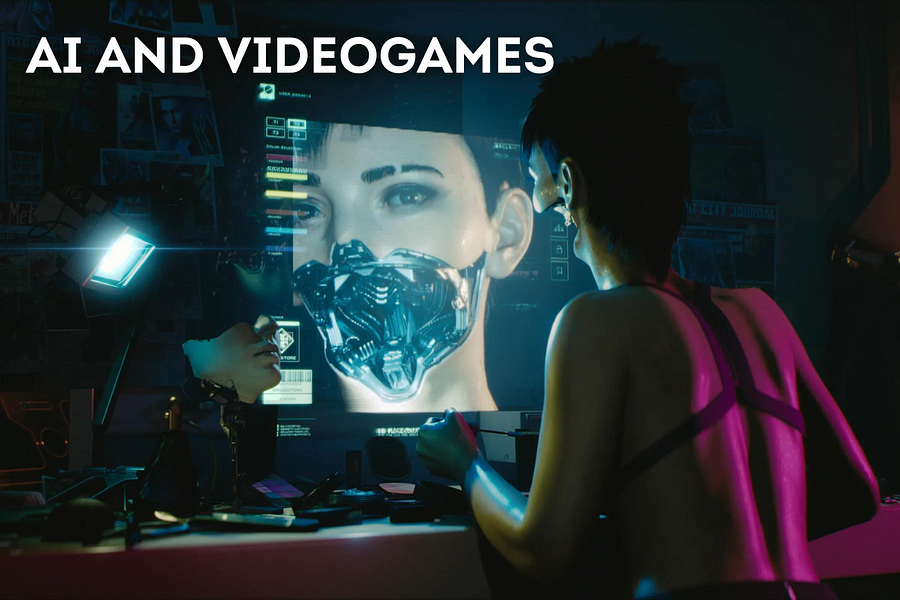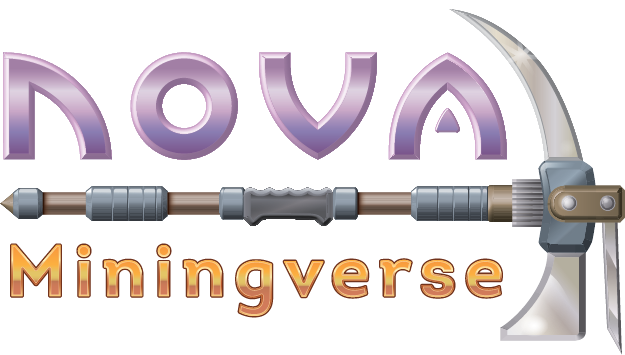
Nowadays, with the supremacy of Chat GPT making redundant some jobs, people are most afraid about the impact that AI development will have on the most personal facets of their lives. Until now, we saw mostly AI applications for programming, researching information and writing, but let’s be optimistic with applications not seen until now: such as mankind’s entertainment.
Artificial Intelligence (AI) has the potential to revolutionize gaming experiences in several ways. From personalization to procedural content generation, there are many ways that AI can enhance and innovate the gaming industry. In this article, we will dive deeper into these areas and provide examples of how AI is already changing the gaming landscape.
Personalization
One of the most significant benefits of AI in gaming is personalization. AI algorithms can analyze players’ behaviour and preferences, allowing games to be customized to each player’s individual tastes. This can improve engagement, retention, and ultimately, revenue. AI-powered personalization can manifest in several ways, including:
- Game Difficulty: AI can adjust the game’s difficulty level based on the player’s skill level, ensuring that the player is always challenged but not overwhelmed. For example, the game “Left 4 Dead” uses AI to adjust the game’s difficulty based on the player’s skill level and performance.
- Content Recommendations: AI can analyze the player’s gaming history and recommend new games or content that they might enjoy. For example, the gaming platform Steam uses AI to recommend games to its users based on their past gameplay behaviour.
- In-Game Ads: AI can analyze player behaviour to serve more relevant ads. For example, the mobile game “Cookie Jam” uses AI to serve ads that are more relevant to the player, increasing the chances of a click-through.
Adaptivity
AI can help games adapt to changing circumstances in real time, providing a dynamic and challenging experience for players. This can increase replay value and player satisfaction. With AI, games can adjust to player performance, ensuring a more immersive and personalized experience. Examples of AI-powered adaptivity include:
- Dynamic Difficulty Adjustment: AI can adjust the game’s difficulty level in real time based on the player’s performance, ensuring that the game remains challenging but not frustrating. For example, the game “Forza Horizon 4” uses AI to adjust the game’s difficulty level based on the player’s skill level and performance.
- Non-Player Character (NPC) Behavior: AI can make NPCs more intelligent and responsive to the player’s actions, creating a more immersive game world. For example, the game “Red Dead Redemption 2” uses AI to create a realistic and immersive game world where NPCs react to the player’s actions in real time.
Procedural Content Generation
AI can generate new game content on the fly, making each playthrough unique. This can significantly extend the lifespan of games, as players can always discover new content. Procedural content generation also allows developers to create a vast amount of content in a shorter time frame, reducing development costs and improving the game’s overall quality. Examples of AI-powered procedural content generation include:
- Terrain Generation: AI can generate new terrain for games, making each playthrough unique. For example, the game “No Man’s Sky” uses AI to generate an infinite number of unique planets for players to explore.
- Quest Generation: AI can generate new quests and missions for players to complete, making the game world feel more alive and dynamic. For example, the game “Borderlands 3” uses AI to generate new quests and missions for players to complete, ensuring that there is always something new to do.
Smarter NPCs
AI can improve the behaviour of non-player characters (NPCs), making them more intelligent, realistic, and responsive to the player’s actions. This can enhance immersion and make the game world feel more alive. NPCs with AI can recognize player actions and adapt to them, making the game more challenging and interactive. Examples of AI-powered smarter NPCs include:
- Dialogue Generation: AI can generate realistic and engaging dialogue for NPCs, making them feel more like real characters. For example, the game “Disco Elysium” uses AI to generate realistic and immersive dialogue for its NPCs, creating a more realistic and engaging game world.
- Behavioural Adaptation: AI can make NPCs adapt to the player’s behaviour, making the game more challenging and interactive. For example, the game “The Last of Us Part II” uses AI to create enemies that adapt to the player’s tactics and respond accordingly.
Game Balancing
AI can analyze player data and automatically adjust the game balance to ensure a fair and enjoyable experience for everyone. This can reduce frustration and improve the overall quality of the game. Game balancing with AI can manifest in several ways, including:
- Matchmaking: AI can analyze player data to create balanced matches, ensuring that players are matched with opponents of similar skill levels. For example, the game “Overwatch” uses AI to create balanced matches by analyzing players’ skill levels and gameplay behaviour.
- In-Game Purchases: AI can analyze player data to create fair and balanced in-game purchase options, reducing frustration and increasing revenue. For example, the mobile game “Clash Royale” uses AI to create balanced in-game purchase options based on the player’s gameplay behaviour.
Natural Language Processing
AI can help facilitate more natural interactions between players and games through voice recognition and natural language processing. This can make games more accessible to a wider audience. Examples of AI-powered natural language processing include:
- Voice Recognition: AI can recognize voice commands and respond accordingly, making games more interactive and immersive. For example, the game “Star Trek: Bridge Crew” uses AI to recognize voice commands, allowing players to interact with the game through natural speech.
- Chatbots: AI-powered chatbots can provide personalized assistance and support to players, improving the overall gaming experience. For example, the game “Final Fantasy XV” uses an AI-powered chatbot to provide players with assistance and support throughout the game.
Overall, AI has the potential to revolutionize gaming experiences by providing more personalized, dynamic, and engaging experiences for players. As technology continues to advance, we can expect to see even more innovative and exciting uses of AI in games. From personalization to procedural content generation, a feature that is already used for the level generation of The Mines in our first title, Minersia X32.
Keen to learn more?
Read the Nova Miningverse Whitepaper
Stay close: Telegram | Nova Miningverse Twitter | LinkedIn | Website | YouTube | Discord

